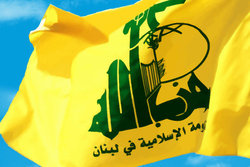 Lebanon’s Foreign Minister Gebran Bassil has lauded the Lebanese resistance movement Hezbollah as a pillar of the country’s stability and unity.
Lebanon’s Foreign Minister Gebran Bassil has lauded the Lebanese resistance movement Hezbollah as a pillar of the country’s stability and unity. RNA - In an interview with Euronews on Saturday, Bassil, the leader of Free Patriotic Movement (FPM), said the alliance between his party and the resistance movement is “definitely …saving the country and its national unity.”
“It’s avoiding that Lebanon slips into a conflict or civil war, something we all want to avoid,” he said.
The Lebanese foreign minister also denounced a US decision to designate the resistance movement as a “terrorist organization.”
“Hezbollah is part, a big part of our population. We cannot accept to accuse them of terrorism,” he said.
Earlier in July, the US Treasury Department imposed sanctions on two Hezbollah members of Lebanon’s parliament and a security official responsible for coordinating between the resistance movement and the country’s security agencies.
Washington also accused the individuals of “undermining Lebanese financial institutions to assist Hezbollah and to evade US sanctions against” the resistance movement.
It was the first time that the US Treasury Department's Office of Foreign Assets Control put Lebanese parliamentarians on its sanctions list.
Separately, US Secretary of State Mike Pompeo said that the designations were meant to counter Hezbollah’s influence in Lebanon.
Some 50 Hezbollah individuals and entities have been blacklisted by the Treasury since 2017.
In May 2018, the United States and its partners in the Riyadh-based Terrorist Financing and Targeting Center (TFTC), which includes Saudi Arabia, Bahrain, Kuwait, Oman, Qatar and the United Arab Emirates, imposed sanctions on Hezbollah leadership, targeting its Secretary General Sayyed Hassan Nasrallah and Deputy Secretary General Sheikh Naim Qassem.
US President Donald Trump’s administration imposed additional sanctions on Hezbollah in late October last year, targeting individuals and international organizations that do business with the group.
Hezbollah was founded in the 1980s following the Israeli invasion and occupation of southern Lebanon. The movement waged a long resistance campaign against Israeli forces and pushed them out of southern Lebanon in May 2000. Since then, the group has grown into a powerful military force. Israel also suffered a humiliating defeat from Hezbollah in the 2006 war.
Since its inception in 1985, the Lebanese resistance movement has been a thorn in the side of Israel and its foreign backers, including the United States.
Elsewhere in his Saturday interview, the Lebanese top diplomat said his country is making efforts to help de-escalate tensions in the region.
"Lebanon is in a place where we can bridge the differences and where we have the interests not to have conflicts or wars,” he said.
847/940